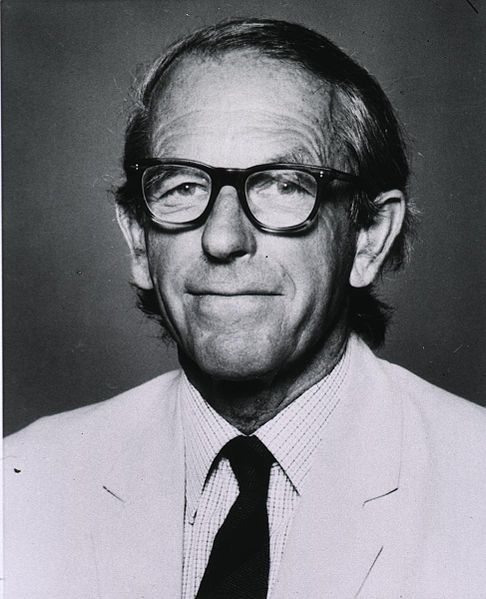Fred Sanger, the British biochemist who won two Nobel Prizes, died this week on  Tuesday 19 November 2013, aged 95. Known as the "father of genomics," he developed methods which allow us to determine the structure of proteins and the order of the building blocks of DNA.
Tuesday 19 November 2013, aged 95. Known as the "father of genomics," he developed methods which allow us to determine the structure of proteins and the order of the building blocks of DNA.
Kate Lamble was joined by Professor Tim Hubbard from Kings College London to talk about his work and legacy.
Kate - Fred was one of only four people ever to win two Nobel Prizes. Why was his work so important?
Tim - So, you have to think back to the '40s and '50s when it wasn't even realized that biology was digital. So, you had proteins and it wasn't even clear that they were actually linear sequences of amino acids. So Fred Sanger determined the first protein insulin and showed it was a linear sequence - if you have a lot whole collection of insulin molecules, they're all the same.
Kate - What do you mean by digital? Most of us think of biology as being the study of what's actually there in front of us.
Tim - Well, digital in the sense that it's all about polypeptides. You have these long chains of sequences. You have long chains of sequences of protein and later on, this is before the structure of DNA was solved. It was realised that DNA encodes the sequence that specifies how to make those proteins. DNA is also a long molecule and Fred Sanger developed the best method for sequencing that and that method went on to being used right up to the sequencing of the human genome in 2000.
Kate - We sort of take it for granted nowadays that we can just sequence DNA. How revolutionary a thought processes, was this at the time?
Tim - It's revolutionary in the sense that the really difficult process of sequencing proteins was much, much faster to sequence DNA and that's just got faster and faster over time, such that now, you can sequence a whole human genome on a single machine in 24 hours. It will get faster still and the applications in healthcare, of being able to sequence everybody eventually, eventually is enormous.
Kate - We sort of know the names of Watson and Crick, they're household names for the discovery of DNA. Why isn't Sanger (in my experience) a household name?
Tim - Well, I think he didn't want to do that kind of stuff. He was much more interested in the quite practical things of just doing science. In fact, when he was asked would the Sanger Institutethat was sequencing the human genome, did he want it to be named after him. He said, that was okay, "but it had better be good."
Kate - Perfect answer. You were telling me just outside a little bit earlier on, everything he needed to do if he want to do another project had to be three times better.
Tim - Well, I think that's a story I was told and if you look at the size of the first virus and then the mitochondria and then the next thing, they were each roughly three times bigger. It does show the kind of progression of sequencing technology. It's just got faster and faster, and will go on getting faster and faster, and cheaper and cheaper.
Kate - So, we're using his discoveries now more and more. Do you think his work will carry on being important over the next 10, 15, 20 years?
Tim - Yeah. I mean, the sequence of the human genome is completely fundamental. It's changed the way biology is being done, the way healthcare is being developed. It all relates back to these original methods developed to work out how you could sequence DNA.










Comments
Add a comment